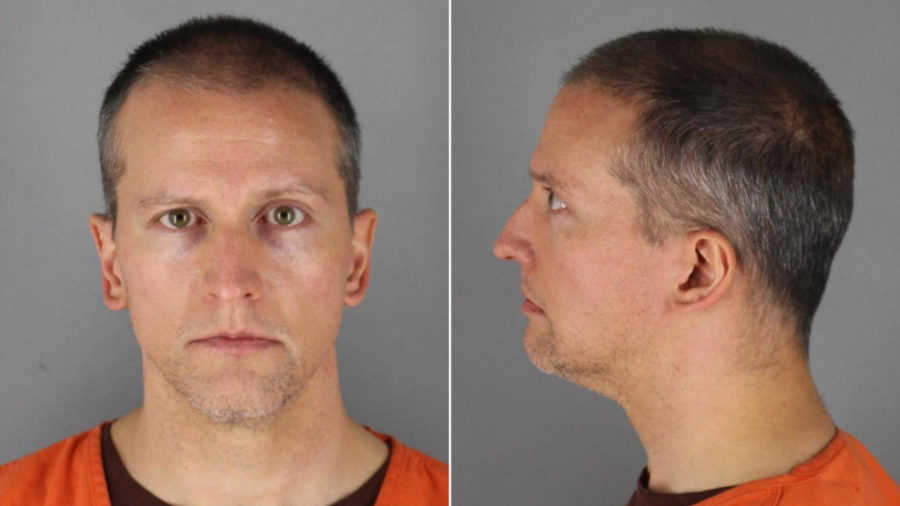First Week of Witness Testimonies in Derek Chauvin’s Trial Ends
April 5, 2021
The first week of witness testimonies in Derek Chauvin’s trial ended Friday afternoon. Chauvin is on trial with charges of the murder of George Floyd, a 46-year-old black man, who was killed in police custody.
On May 25, 2020, a 911 call was made by a convenience store employee claiming Floyd had used a counterfeit $20 bill to purchase cigarettes and police officers arrived on the scene. However, 17 minutes after the arrival of the first squad car, Floyd showed no signs of life.
The four officers who arrived on the scene were arrested the day after Floyd’s death. Chauvin is on trial with charges of second-degree murder, third-degree murder and second-degree manslaughter. On Friday, a veteran Minneapolis police lieutenant testified it was “totally unnecessary” for Chauvin to put his knee on a person’s neck, let alone someone who is already handcuffed.
“[P]ulling him down to the ground facedown and putting your knee on a neck for that amount of time is just uncalled for,” said Lt. Richard Zimmerman in Hennepin County District Court during the trial.
Department policy requires police officers to remove suspects from their chest as soon as possible when they are prone and handcuffed, said Zimmerman, the longest-serving police officer in the Minneapolis Police Department. The high level of restraint should’ve stopped after Floyd was prone and no longer resisting.
During cross-examination, Chauvin’s lead defense attorney, Eric Nelson, attempted to make Zimmerman seem out of touch with the crime on Minneapolis streets.
Nelson pointed out that when an officer is involved in a fight for life, they “are allowed to use whatever force necessary.”
When the prosecution re-questioned the lieutenant, Zimmerman told the court that the police training regarding potential dangers for a suspect in the prone position has not changed. In his review of the body camera footage, Zimmerman did not see Floyd resisting the officers.
Prosecutor Steve Schleicher questioned a Minneapolis Police Department sergeant, Jon Edwards. Edwards received a phone call from Sgt. David Pleoger, who told him he was “at the hospital and was with a male who may or may not live.”
Edwards arrived on the scene and began canvassing for witnesses. Even after talking to officers J. Alexander Keung and Thomas Lane, Edwards didn’t have a good understanding of what occurred. It wasn’t until later that night that Edwards learned Floyd was dead and Chauvin was involved.
Pleoger testified Thursday. Pleoger was responsible for reviewing the officer’s use of force after receiving a call from 911 dispatcher Jena Scurry, who testified earlier in the week.
Pleoger said, “When Mr. Floyd was no longer offering up any resistance to the officers, they could have ended their restraint.”
Hennepin County Paramedic Derek Smith noticed Floyd was not moving, was handcuffed and was not being given medical attention when he came to the scene. He noted that Floyd’s pupils were large and dilated.
“In lay terms, I thought he was dead. I told my partner, ‘I think he’s dead, and I want to move this out of here,’” said Smith.
Smith checked for a pulse and could not find one. Smith administered a shock to Floyd and ordered an officer to do chest compressions.
The court also heard from Courteney Ross, Floyd’s girlfriend for about three years. She broke down in tears on the witness stand when talking about the athletic, “mama’s boy,” who was a struggling drug user.
“Floyd loved playing sports with anyone who wanted to, including neighborhood kids. He’s that person who’d just run to the store,” she said. “Floyd and I both suffered from opiate addiction. We both suffered from chronic pain. Mine was in my neck. His was in his back. We both had prescriptions. After prescriptions were filled, we got addicted, and we both tried, very hard, to break the addictions, many times.”
For more information and frequently updated information:
- www.startribune.com/local/chauvintrial/
- www.nytimes.com/news-event/trial-of-george-floyd-killing?name=styln-floyd-trial®ion=TOP_BANNER&block=storyline_menu_recirc&action=click&pgtype=Article&variant=show
- www.npr.org/sections/trial-over-killing-of-george-floyd/


















